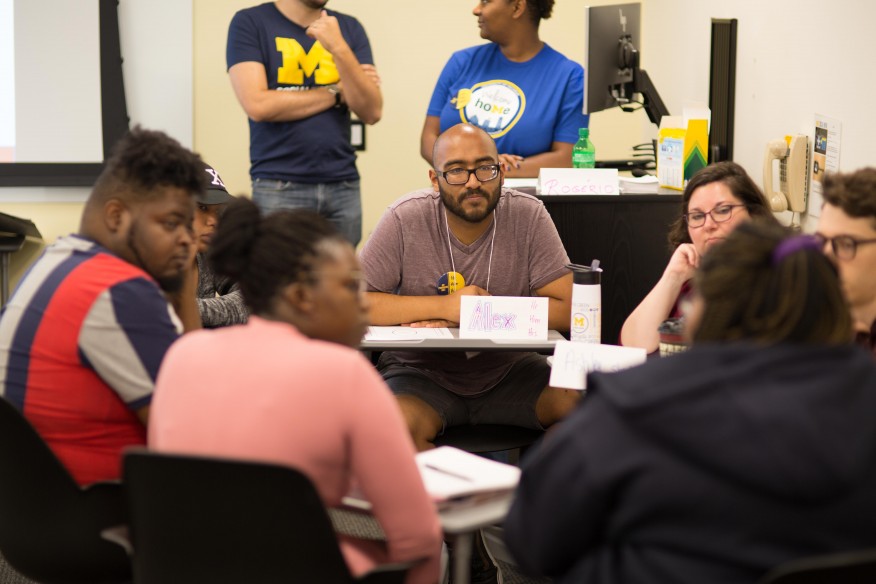Before COVID, most of us had all been in virtual meetings of some kind at some point. But what happens when all of your classes go online, almost overnight? How do you keep students engaged?
Faculty and Information Technology Create Online Classes
Barb Hiltz, MSW program director, Ryan Bankston, associate director of information technology, and his team immediately put together faculty trainings and instructional documents for online platforms. There were few hitches in the five-day switchover. Said Bankston, "It's great a testament to the dedication of our faculty, staff and students that the transition went so well."
Classroom dynamics can be awkward online. Clinical Assistant Professor Katie Doyle assembled a list of best practices to share, including clear and transparent expectations and structures. Pre-recorded talks and faculty guest speakers supplemented live lectures, and many faculty stepped up including Clinical Assistant Professor Justin Hodge, Assistant Professor Jamie Mitchell, and Associate Professors Kristin Seefeldt and Karen Staller.
Students also were juggling physical and/or mental health issues and many were worrying about loved ones at risk. Lecturer Laura Yakas recommended taking an overall “flexible, trauma-informed pedagogical approach,” allowing students as much as possible to choose their own pace and type of class participation. Faculty could use this approach themselves, turning their own challenges into teaching moments with students.
Field Pivots to Support Agencies During Pandemic
Michigan’s “Stay Home, Stay Safe” order created particular challenges for MSW student field placements. Many agencies suspended operations or programs; in other cases, students found themselves unable to attend their placement. In the face of these hurdles, the Office of Field Education worked together with the School’s Community Engagement Team to rethink field education creating new ways for social work students to engage with the community, support field agencies and gain field experience necessary for licensure.
CE Develops Teletherapy Course on a Dime
Liz González, ‘11 MSW, and Alia Wesala, assistant director of continuing and professional education, recognized the need for social workers to deliver online teletherapy and telehealth services during the pandemic. González went to work and within days had created an online CE course —” Teletherapy: Start It Up!” — which attracted more than 1,200 registrants within 24 hours. “Many social workers have been forced to work with clients online or by phone for the first time, and they were not prepared for it. There are many ethical considerations to understand and navigate around system security, privacy, informed consent and HIPAA compliance,” said Wesala.
